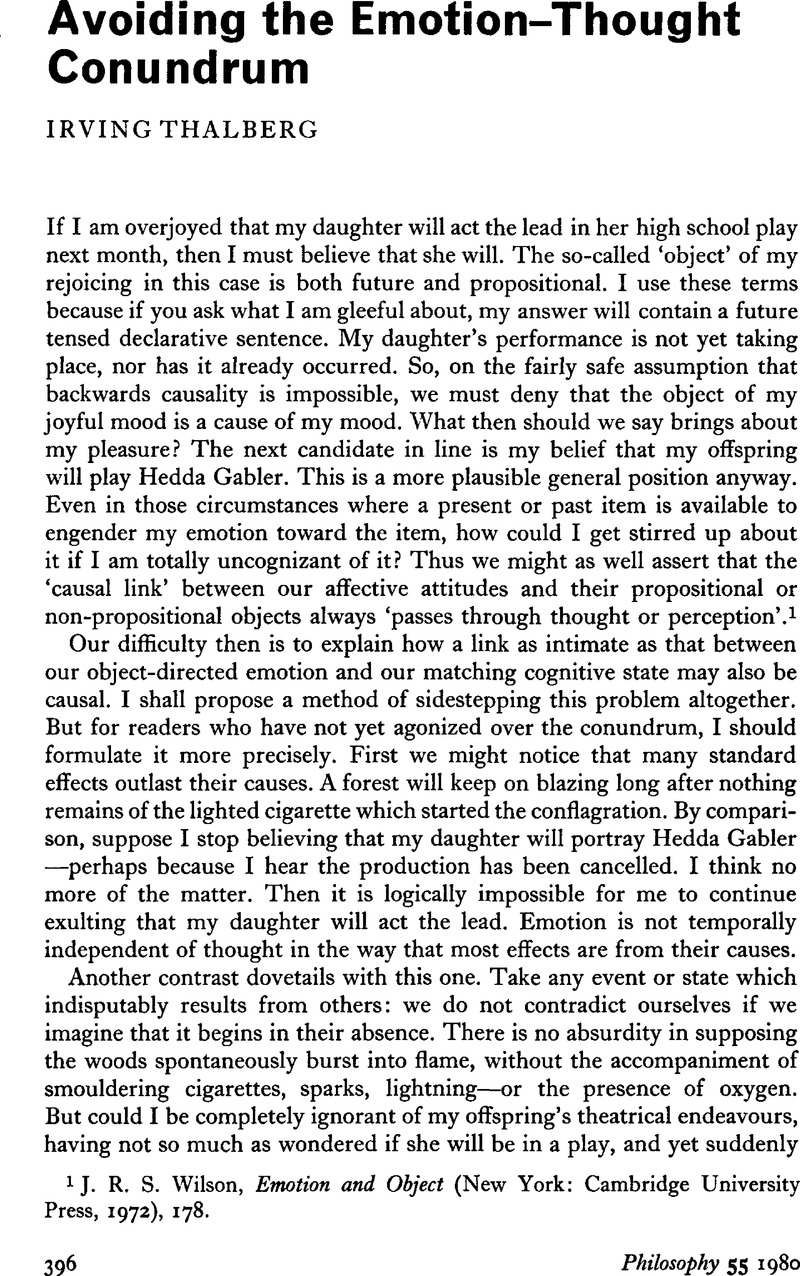Article contents
Avoiding the Emotion–Thought Conundrum
Published online by Cambridge University Press: 30 January 2009
Abstract

- Type
- Discussion
- Information
- Copyright
- Copyright © The Royal Institute of Philosophy 1980
References
1 Wilson, J. R. S., Emotion and Object (New York: Cambridge University Press, 1972), 178.CrossRefGoogle Scholar
2 Davidson, D., ‘Hume's Cognitive Theory of Pride,’ Journal of Philosophy 73, No. 19 (1976), 755.CrossRefGoogle Scholar
3 Green, O. H., ‘Emotions and Belief’, American Philosophical Quarterly, Monograph VI (1972), 38.Google Scholar
4 Neu, J., Emotion, Thought and Therapy (Berkeley: University of California Press, 1977), 1, 36, 46, 161.Google Scholar
5 Neu, , op. cit., 99.Google Scholar
6 Neu, , op. cit., 36.Google Scholar
7 Thomson, Judith J., Acts and Other Events (Ithaca: Cornell University Press, 1977), 264.Google Scholar
8 See Thalberg, I., ‘Constituents and Causes of Emotion and Action,’ Philosophical Quarterly 23, No. 1 (1973), 1–14CrossRefGoogle Scholar; and Thalberg, I., Perception, Emotion and Action (Oxford: Blackwell, 1977).Google Scholar
9 For example, Sartre, J. P., Esquisse d'une Théorie des Emotions (Paris: Vrin, 1939)Google Scholar; Solomon, R., The Passions (Garden City: Doubleday, 1976)Google Scholar; and Solomon, R. ‘The Logic of Emotion, Nous 11, No. 1 (1977), 1–14.CrossRefGoogle Scholar
10 For a beginning, see my ‘Mental Activity and Passivity’, Mind 87, No. 3 (1978). 376–395.Google Scholar
11 This and the next paragraph were stimulated by the astute questioning of several people when I read a draft of my essay to the University of Chicago Philosophy Colloquium in November 1978. I am particularly indebted to Professor Donald Davidson for his commentary; but he is not responsible for the use to which I have put his event theory in these paragraphs.
12 See Davidson, D., ‘The Logical Form of Action Sentences’, in Rescher, N. (ed.), The Logic of Decision and Action (Pittsburgh: University of Pittsburgh Press, 1967), 81–95.Google Scholar
- 2
- Cited by


